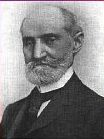Fever
Characteristic – Ailments which are aggravated by, or which depend upon, dampness of weather, damp houses or cellars (Ant.t., Aranea, Ter.).
Patient feels every change from dry to wet, cannot tolerate sea air, nor eat plants that thrive near water, a constitution in which the gonorrheal poison is most pernicious, recovers slowly from every sickness.
Every spring, skin affections reappear (Psorinum).
Inability to think (Nat.c.).
Sad, gloomy, irritable, worse in morning, dislikes to speak or be spoken to (Iodium, Silicea).
Depressed, lively music makes her sad, satiety of life, must use great self – control to prevent shooting himself.
Mental traumatism, mental effects from injuries to head, chronic effects of blows, falls.
Granular lids: like small blisters (Thuja), green pus and terrible photophobia, gonorrheal or sycotic.
Nosebleed during menses (instead of menses, Bryonia, Phosphorus, Pulsatilla).
Toothache ameliorated by cold water, cool air (Coffea, Pulsatilla).
Dirty, greenish-gray or brown coating on tongue.
Diarrhea: sudden, urging, gushing, much flatus, on first rising and standing on the feet, after a spell of wet weather, living or working in basements.
Gonorrhea, greenish – yellow, painless, thick discharge (Pulsatilla), chronic or suppressed (thick, green, Kali iod.).
Dyspnea, desire to take a deep breath during damp, cloudy weather.
Humid asthma in children, with every change to wet weather, with every fresh cold, always worse in damp, rainy weather, sputa green, greenish, copious (greenish grey, Copaiva)
Sycotic pneumonia, lower lobe of left lung, great soreness of chest, during cough, has to sit up in bed and hold the chest with both hands (Nic. – right lung, Bryonia).
Spinal meningitis: violent crushing gnawing pains at base of brain. head drawn back, spasms with mental irritability and delirium, violent congestion of blood to head, delirium, opisthotonos.
Aggravation: Damp basements or dwellings, damp weather (Aranea, Arsenicumi., Dulcamara), rest, lying.
Amelioration: Dry weather, pressure, sitting up (cough), changing position (but ameliorated in wet weather, Causticum), open air.
Type: Remittent, bilious, malarial, yellow, or yellow assumes a remittent or low continued form, instead of recovering.
Time: 4-8 p.m.
Cause: Exposure, living in damp houses, basements, cellars, wet weather, sea air, living near water, every changed from dry to wet (Aranea, Dulcamara, Rhus).
Chill: Internal, with yawning and stretching. Chills, with icy coldness and goose-flesh, 4-8 p.m., towards evening, without thirst, evening in bed, could not get warm all night, up the back, with shaking and chattering of the teeth, without internal coldness, waking at night with anguish and thirst.
Chilly in bed and shaking chills out of it, thirst, pulse very rapid. Chilly and feverish in evening.
Heat: Day in afternoon, in sudden flashes towards evening, hot sensation on vertex, general heat and restlessness in evening.
Sweat: Without thirst, on single parts, on face, on genitals, at night, in morning.
Tongue: Dirty, greenish – grey, or greenish – brown coating on base of tongue, covered with mucus, slimy, taste bitter or lost.
Analysis – Fevers, with icy coldness, no thirst in any stage, attacks come on suddenly, bilious vomiting, malarial, caused or aggravated by wet weather or living near water or seashore, working in damp rooms or basements.

